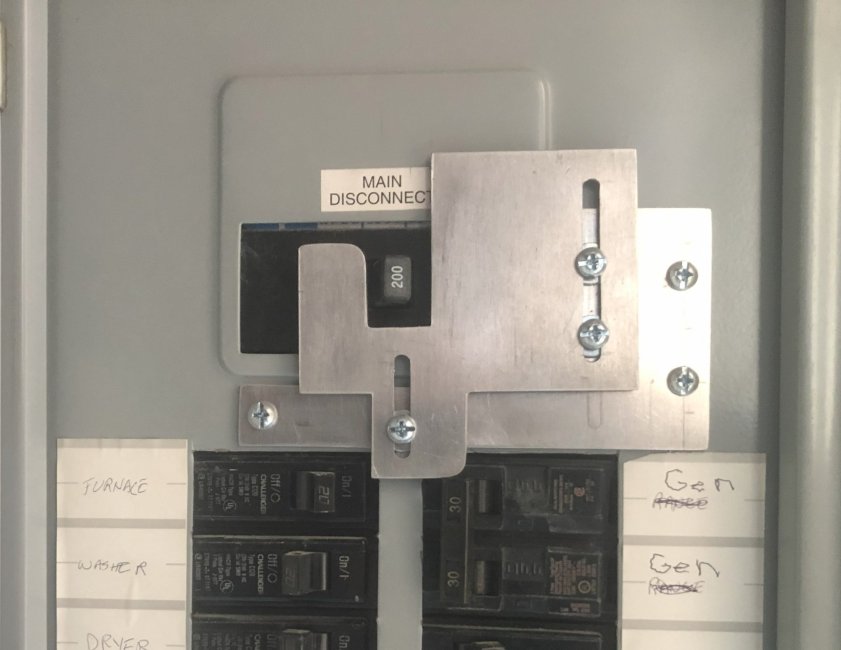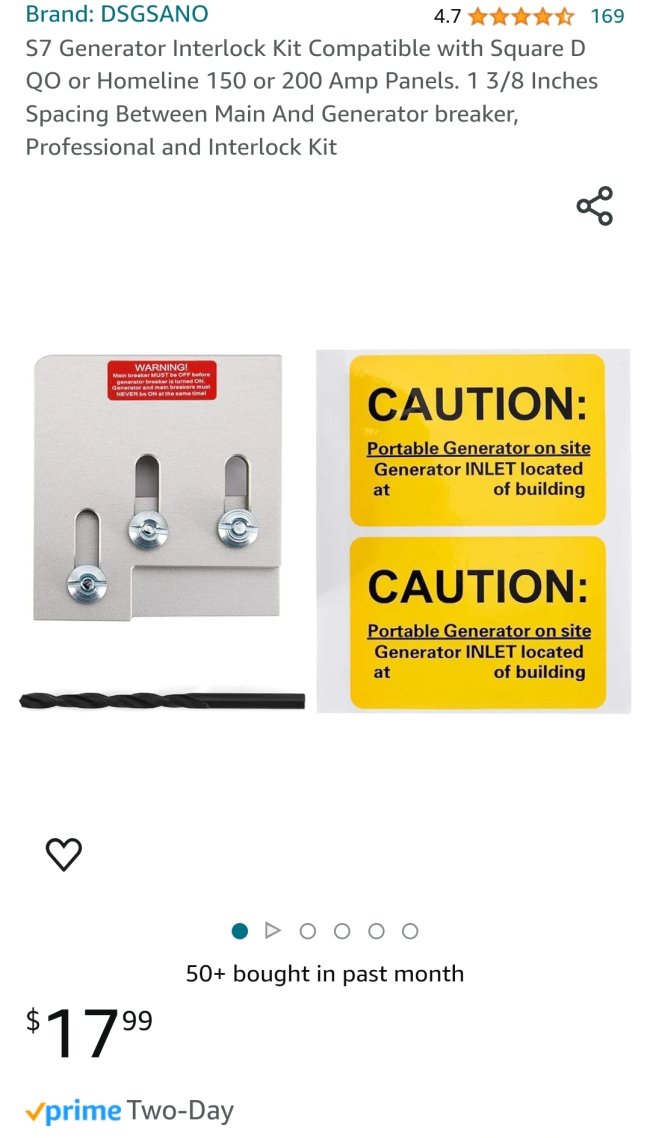I live near one of the areas hit by the tornados Thursday night. Near enough that we were without power for about 24 hours, and I don't know when I've heard so many sirens in all directions. We were very lucky to have no damage at our place, we just lost power, internet, and even cell service for a while.
When the power was still off the next morning, we had instant coffee with the camp stove. With two freezers full of food, and water rising in the crawl space, I got out my generator. I hadn't run it for almost a year and the battery was dead, so I had to steal the battery out of my grandson's gator. Hooked up the battery, added fresh gas, opened the gas valve, crossed my fingers, and hit the starter. I was almost surprised when it started right up. I ran extension cords to the sump pump, freezers, and the inside fridge/freezer. I was glad to see that there was no melting in the freezers after 12 hours, but I did have a good bit of water under my house from the heavy rain.
Two years ago, I had installed a plug on the outside of my house, with plans to have an electrician wire it in to my breaker box. The electrician never got back with me and I planned to do it myself, but never did. So, since I had all the stuff and the power was off anyway, I figured I might as well get it done. I did already have the 30 amp 240V breaker, and an interlock plate installed, so all I had to do was fish the wire from the breaker box a couple of feet through the outside wall to my outside plug and connect it up. I also had to move one single-pole breaker to the bottom of the row to make room at the top for the big one. I'm not an electrician, but I've watched a lot of Youtube videos, and I had my Black & Decker Home Wiring book from Lowes, so you know, just as good. I worked slow, and double-checked all of my connections. Really, the hardest part was fishing the heavy wire through the wall.
The interlock plate requires that you flip the main breaker off before you can flip the generator breaker on, which is good. After I was done, I got out my thick 240V cable and connected that from the generator to the house plug and switched it on, after switching off the breakers that I didn't want on, like the water heater and dryer. It's way nicer with the whole-house plug, not having a bunch of extension cords going through doorways, and you can turn lights on when you need them, and the TV would have worked if the cable wasn't also out.
Anyway, I figured I'd post this thread since it's situations like this one that really drive home the need for prepping, for me. After a two-week long power outage in 1995 I had decided never to be so unprepared again, and still yet here I was not as prepared as I could have and should have been. I need to take my lessons where I can get them, and try to learn something.
When the power was still off the next morning, we had instant coffee with the camp stove. With two freezers full of food, and water rising in the crawl space, I got out my generator. I hadn't run it for almost a year and the battery was dead, so I had to steal the battery out of my grandson's gator. Hooked up the battery, added fresh gas, opened the gas valve, crossed my fingers, and hit the starter. I was almost surprised when it started right up. I ran extension cords to the sump pump, freezers, and the inside fridge/freezer. I was glad to see that there was no melting in the freezers after 12 hours, but I did have a good bit of water under my house from the heavy rain.
Two years ago, I had installed a plug on the outside of my house, with plans to have an electrician wire it in to my breaker box. The electrician never got back with me and I planned to do it myself, but never did. So, since I had all the stuff and the power was off anyway, I figured I might as well get it done. I did already have the 30 amp 240V breaker, and an interlock plate installed, so all I had to do was fish the wire from the breaker box a couple of feet through the outside wall to my outside plug and connect it up. I also had to move one single-pole breaker to the bottom of the row to make room at the top for the big one. I'm not an electrician, but I've watched a lot of Youtube videos, and I had my Black & Decker Home Wiring book from Lowes, so you know, just as good. I worked slow, and double-checked all of my connections. Really, the hardest part was fishing the heavy wire through the wall.
The interlock plate requires that you flip the main breaker off before you can flip the generator breaker on, which is good. After I was done, I got out my thick 240V cable and connected that from the generator to the house plug and switched it on, after switching off the breakers that I didn't want on, like the water heater and dryer. It's way nicer with the whole-house plug, not having a bunch of extension cords going through doorways, and you can turn lights on when you need them, and the TV would have worked if the cable wasn't also out.
Anyway, I figured I'd post this thread since it's situations like this one that really drive home the need for prepping, for me. After a two-week long power outage in 1995 I had decided never to be so unprepared again, and still yet here I was not as prepared as I could have and should have been. I need to take my lessons where I can get them, and try to learn something.






